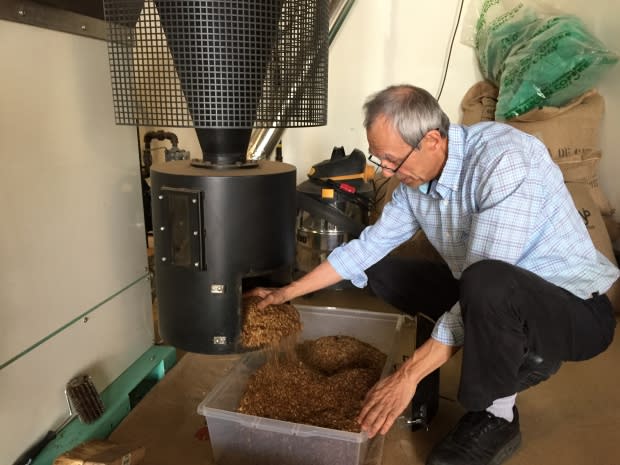Coffee roaster says there's more to the plant than just the bean
The cup might be empty when you're done your morning coffee, but there was a lot left behind in the process of making it.
Hans Langenbahm, a former anthropologist who worked in coffee-producing countries before becoming the head roaster at Ottawa's Happy Goat Coffee, said most of the coffee plant isn't used.
"In the cup is only two per cent, so 98 per cent gets somehow lost," he said on CBC Radio's Ottawa Morning.
He said after the bean is extracted, a lot of the plant is tossed aside and the ground beans themselves also become waste.
"In Canada, alone we produce about 600 tonnes of spent coffee grounds a day," he said.
The cherry and other byproducts can be used for a wide variety of products including a tea made from ground pulp called cascara, honey-like products, alcohol, flour or fertilizer.
"[At coffee farms] you see these huge piles of pulp that is not properly used as a fertilizer and is rotting," he said.
Changing business
Coffee prices have dropped dramatically in recent years, he said, and farmers are having to look at other options or considering selling their land.
He said right now it is selling for 94 cents per pound.
"That is a price where no farmer can survive. In my last trip through Central America, I had never seen so many abandoned farms for sale," he said.
"Farmers are open minded now because they see they have to do something."

He said increasing prices would mean a lot to farmers and while that can happen through fair-trade initiatives, selling more of the plant would be an enormous financial win.
The waste involved in making a cup of coffee is the subject of a talk by him Thursday night at the Canadian Agriculture and Food Museum.

